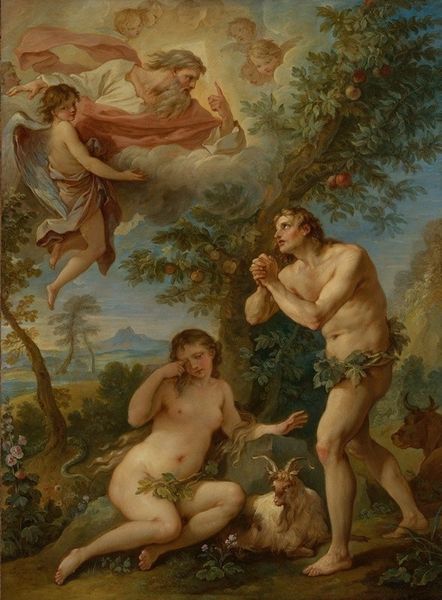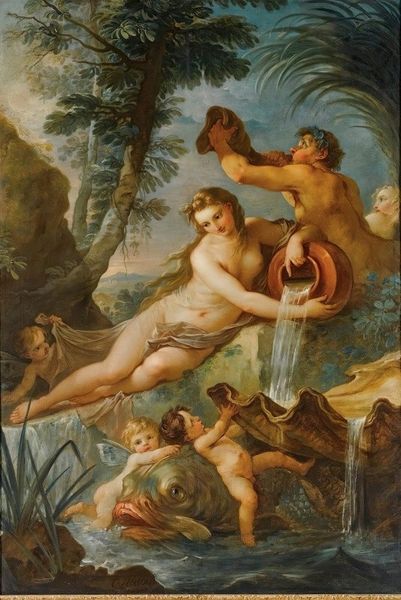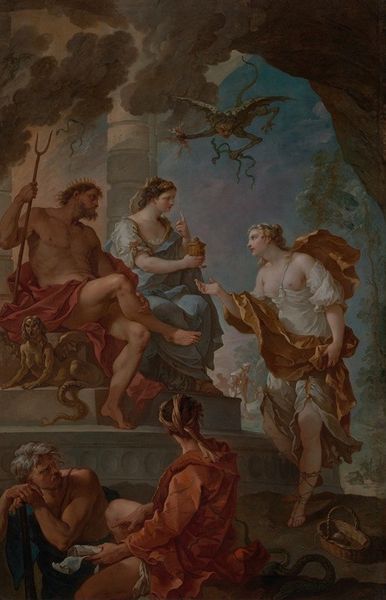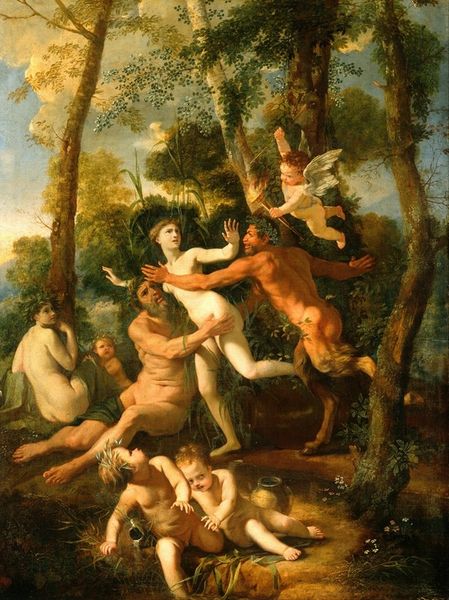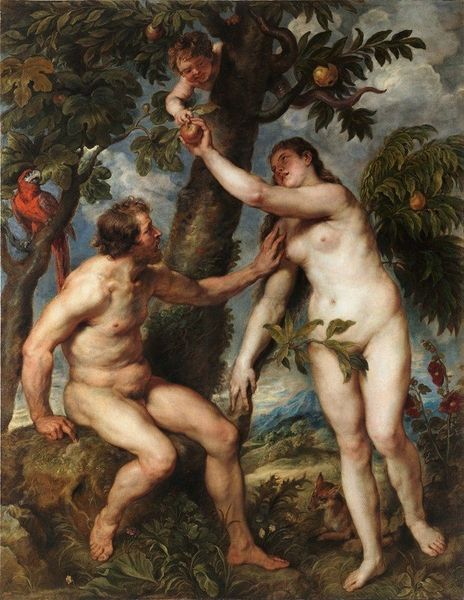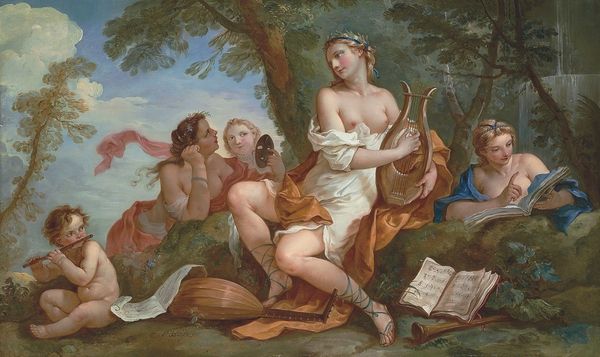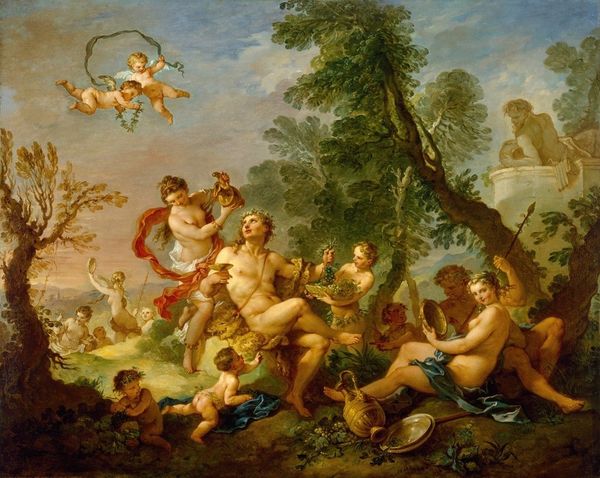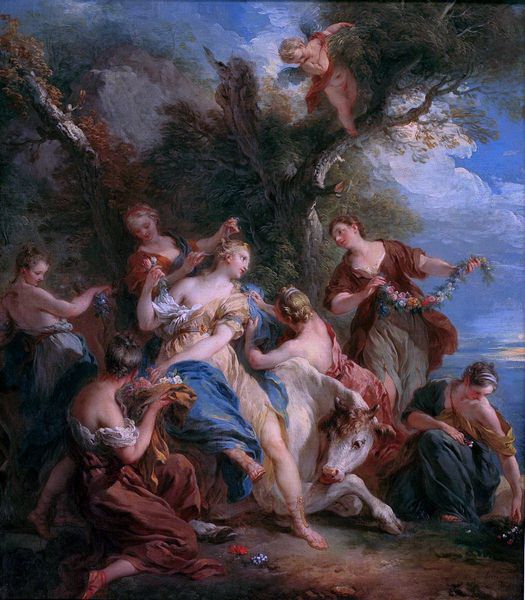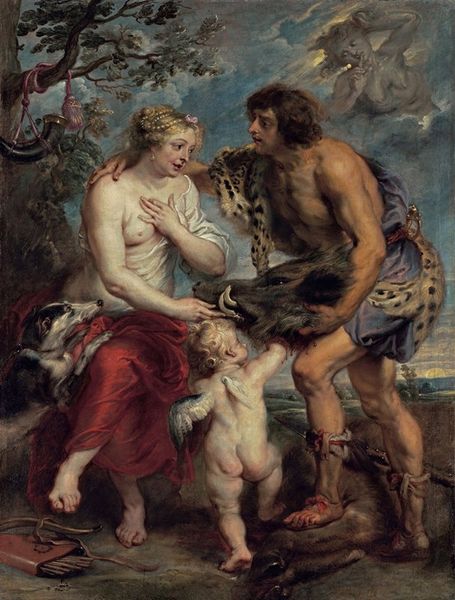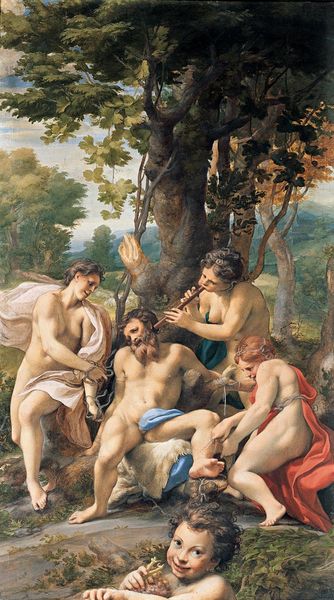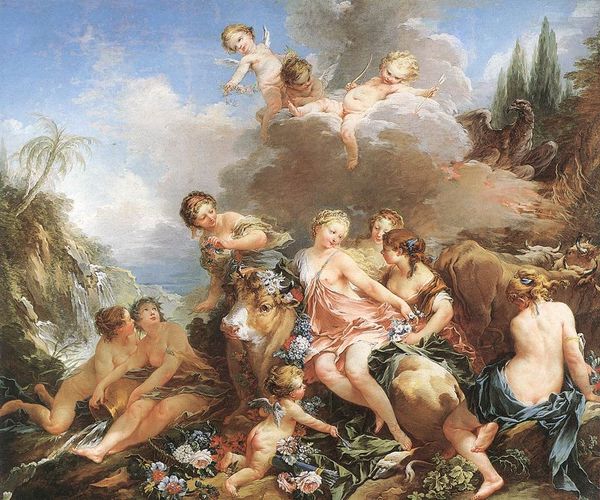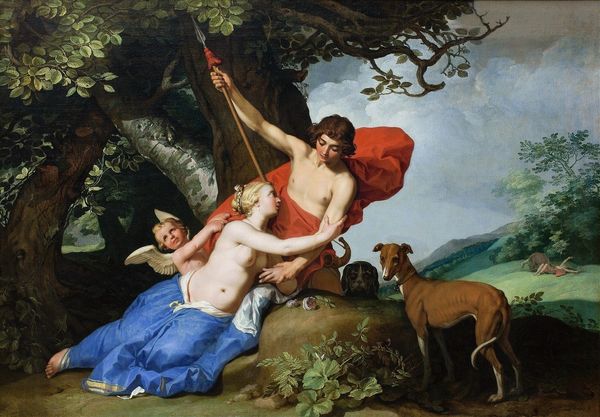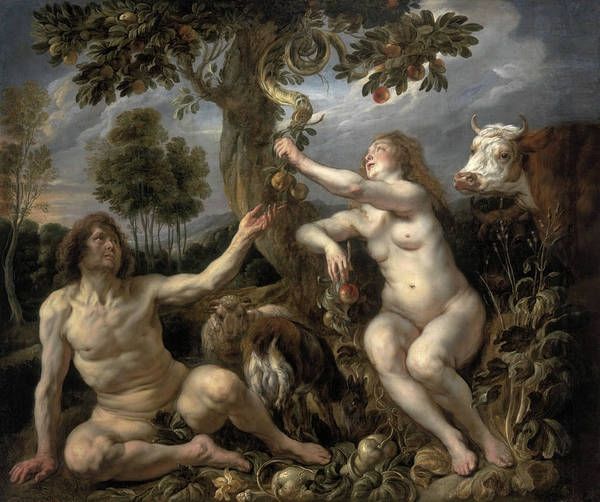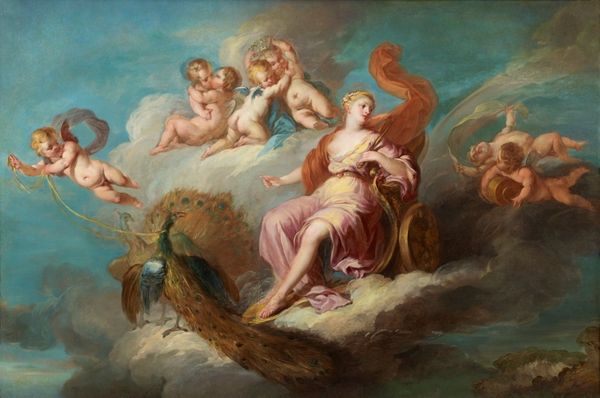
oil-paint
#
gouache
#
allegory
#
baroque
#
oil-paint
#
landscape
#
figuration
#
oil painting
#
mythology
#
history-painting
#
watercolor
Copyright: Public Domain: Artvee
Charles-Joseph Natoire painted "The Triumph of Bacchus" in the eighteenth century, when Europe’s elite reveled in mythological scenes of luxury and excess. Here, Natoire imagines a pastoral celebration of Bacchus, the Roman god of wine, fertility, and theatre. Sensuality permeates the scene with naked figures reclining and reveling in nature's bounty. Yet, if we consider the absence of labor and the presence of enslaved persons in the economies that enabled such lavish displays, it becomes difficult to ignore the darker undercurrents of leisure. The figures are idealized, their bodies conforming to the period’s aesthetic standards, which can be seen as both an embrace of classical beauty and a reflection of the exclusive nature of aristocratic taste. The painting’s joyful surface provides a glimpse into the complex intersections of power, pleasure, and representation of bodies during the Enlightenment.
Comments
No comments
Be the first to comment and join the conversation on the ultimate creative platform.
